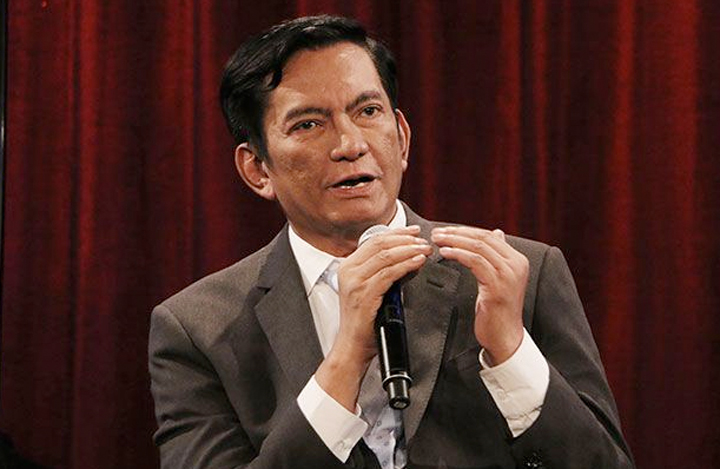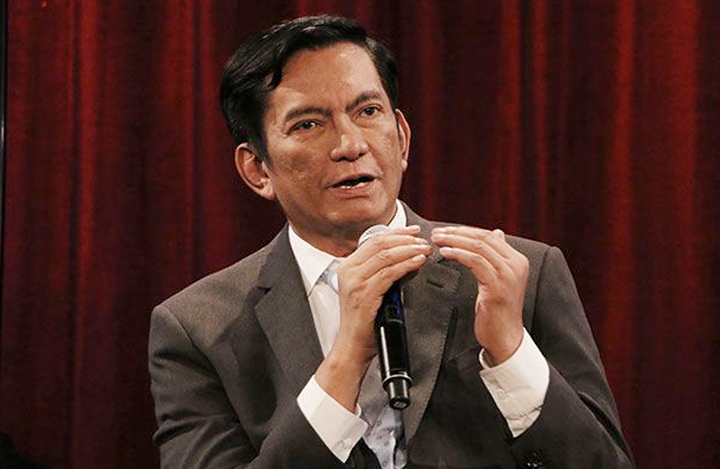
ALBAY Rep. Joey Sarte Salceda believes the country can recover fiscal costs even if government reduces excise taxes on diesel, kerosene and gasoline in six months, a move the lawmaker said could cushion the impact of rising fuel costs and as prescribed by a law he helped craft.
In an aide memoire, Salceda said rising fuel costs “could be a serious dampener to economic recovery and price stabilization.”
He explained that the Mean of Platts Singapore (MOPS) price, which is the basis for the suspension of excise taxes under the Tax Reform for Acceleration and Inclusion [Train] law, has already breached the $84-per barrel for crude.
“The benchmark under Train was $80 per barrel, such that when the price threshold is hit, we would have suspended 2020 fuel excise tax increases,” Salceda said adding that the $80 mark “was an ‘alert level.’”
“We are past that level. MOPS for crude is now over $84,” the chairman of the House Committee on Ways and Means said. “We should really take up a reduction in the excise taxes.”
Exemption, reduction
SALCEDA is proposing exempting diesel and kerosene from excise taxes from December 1, 2021 to June 1, 2022. He also recommends gasoline excise taxes be reduced from P10 per liter to P7 per liter.
“Diesel is the poor man’s transport fuel. Tricycles, motorcycle delivery riders, farmers and jeepney drivers use diesel for their vehicles. Kerosene is the poor man’s cooking fuel. I believe that the biggest reduction should be on these commodities,” he said.
“Gasoline, on the other hand, is the vehicle of use for cars and SUVs [sports utility vehicles]. While we should reduce gasoline excise taxes, the distributional impacts will really be much better in diesel,” the lawmaker added. “It is much more progressive that way.”
Recoverable costs
SALCEDA said his proposal is the “most fiscally sustainable” among all current proposals.
“My proposal aims to provide relief without binding the state’s fiscal resources into an unsustainable commitment,” he said.”
Salceda cited that the full year estimate of a total suspension of fuel excise tax by the Department of Finance (DOF) “is upwards of P130 billion.”
According to the lawmaker, the expected revenue loss from the suspension would be P55.04 billion, of which P36.42 billion will be from diesel, P18.28 billion will be from gasoline and P0.34 billion will come from kerosene.
The lawmaker asserted that these losses will be partly offset by increases in value-added tax collections due to rising prices, which would be around P19.01 billion from these three products. The net decline in fuel tax collections will be around P36.03 billion, he explained further.
“I think my proposal involves a fiscal cost we can recover,” said Salceda who filed his proposal through House Bill (HB) 10438 last Tuesday.
Power to DOE
SALCEDA, meanwhile, urged the Department of Energy (DOE) to implement stricter price monitoring.
“The oil deregulation law empowers them to investigate on the basis of abnormal price increases,” he said. “Under this bill, I am proposing to give them motu propio power to investigate sellers for unusual price activity.”
He said the measure’s ultimate goal is that the reduction goes towards the consumer.
Salceda noted that even with government giving discounts and fuel subsidy to operators and/or drivers of public utility vehicles, “all of them will have someone fall through the cracks or will require so much implementation capacity.”
“I don’t think we can implement [these] in time to really help our people,” he said. “The costs are also almost similar if we really try to reach all affected sectors.”
Salceda’s HB10438 also proposes to require sellers of the products with reduced rates to report their retail prices prior to the imposition of the reduction and every adjustment thereafter during the period of the reduced rates. The bill said this would allow for monitoring the impact of the reduction on actual retail prices and to avoid pricing abuse.
The bill gives the DOF and the DOE motu propio power to seek an investigation into possible pricing abuse should any abnormal or anomalous price movements are detected based on reported data.
Expected opposition
Salceda believes economic managers, particularly the DOF, are likely to oppose his proposal and would only recommend “targeted measures.”
“Targeting, however, will require the kind of absorptive capacity, especially in the transport sector, that is unlikely to be possessed by implementing agencies, an example being the dismal rates of utilization of funds for transport service contracting,” he said.
“The [DOF] is also likely to propose increases in excise taxes on top of Train Law excise taxes when the MOPS price breaches a certain price floor, a proposal which the committee will study and deliberate on,” he added.
The DOF has already expressed objections to the proposed suspension of excise tax, saying doing so would be detrimental to the country’s economic recovery and long-term growth.

